All posts by Henrik Sönnerlind
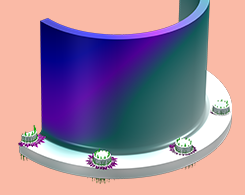
How to Use the Load Plots in Structural Analyses
You can use the load plots available in the COMSOL® software to get the best possible visualization of the loads acting on your structural mechanics models in various situations.
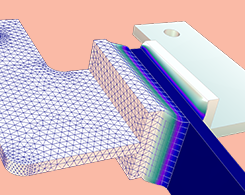
Frequency Response of Mechanical Systems
Read this blog post for a detailed look at damped mechanical systems, a guide to setting up frequency-response analyses in COMSOL®, and a discussion of how to interpret your results.

Introduction to Numerical Integration and Gauss Points
In this comprehensive blog post, we go over the theory behind numerical integration, Gaussian quadrature, Gauss points, weak contributions, and much more.
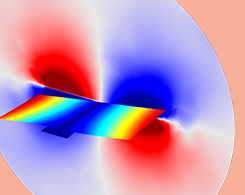
How to Model Different Types of Damping in COMSOL Multiphysics®
Structural dynamics analyses can be difficult if you have to account for damping. Get a demonstration of how to use the different numerical models for damping in COMSOL Multiphysics. Part 2 of 3.
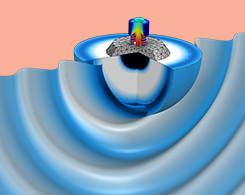
Damping in Structural Dynamics: Theory and Sources
Here’s your introduction to the theory behind damping in vibrating structures, as well as its sources, including internal losses, friction, sound emission, and more. Part 1 of 2.
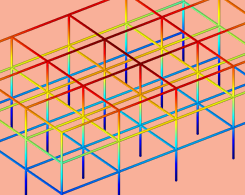
How to Perform Structural Analyses Using Shock Response Spectra
Mechanical engineers: Learn how to find shock response spectra, use combination methods for eigenmodes, perform missing mass correction, and display your results with the COMSOL® software.
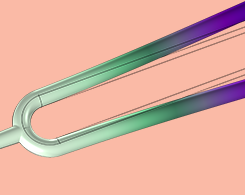
Finding Answers to the Tuning Fork Mystery with Simulation
If you strike a tuning fork and hold it against a tabletop, the peak frequency of the emitted sound doubles. Is there a physical explanation for this “tuning fork mystery”?

Applying and Interpreting Saint-Venant’s Principle
Saint-Venant’s principle is found in most structural engineering textbooks, but what is its exact meaning? We go over its history, definition, and relevance to mechanical analyses.
